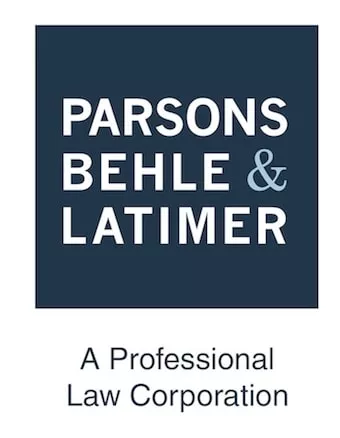- with readers working within the Banking & Credit and Healthcare industries
USCIS Increases Fees for Employment-Based Immigration Applications and Imposes Asylum Program Surcharge
By Lewis M. Francis
The U.S. Citizenship and Immigration Services (USCIS) has increased the filing fees for employment-based applications and for elective Premium Processing of such applications. The Premium Processing fee increases from $2,500 to $2,805, effective Feb. 26, 2024. The USCIS filing fees for the underlying employment-based applications also increase on April 1, 2024, and become subject to a $600-per-application surcharge to pay for the USCIS backlog of unrelated asylum applications. For example, the I-129 application fee for an H-1B increases from $460 to $780 (in addition to the required U.S. Worker fee of $1,500 and the Antifraud fee of $500) and the application fee for an L-1 intracompany transferee increases from $460 to $1,385. In addition, I-129 and I-140 employment-based applications will require the extra $600 Asylum Program surcharge. There is a USCIS fee reduction for small employers (25 or less full-time employees), and non-profit organizations are not required to pay the Asylum Program surcharge. H-1B lottery registration fees will also increase from $10 to $215, but that change will not take effect until March 2025. For a complete list, see Fee Schedule and Changes to Certain Other Immigration Benefit Request Requirements.
New H-1B Lottery Selection Process Starts on March 6, 2024
By Lewis M. Francis
In an effort to stop the recent gaming of the annual H-1B cap lottery, U.S. Citizenship and Immigration Services (USCIS) will implement a new selection process this registration season, which takes place from March 6 to March 22, 2024, with the USCIS H-1B cap selection taking place on April 1, 2024. Under the new rule, each worker with an H-1B registration filed on their behalf is entered into the selection process only once, regardless of the number of employer registrations submitted for them. This will eliminate the improper practice of submitting multiple registrations for the same worker to increase their chances of selection and should improve the chance of selection for each individual applicant. The new H-1B registration rule requires employers to provide valid passport information or valid travel document information for each employee. The new rule also provides that the employment start date on certain H-1B petitions subject to the H-1B cap may be after Oct. 1 of the relevant fiscal year to allow selected employees to maximize their current OPT or STEM-OPT work authorization before changing status to H-1B.
Utah Legislature Weighs Sexual Misconduct Nondisclosure Agreements
By Marci B. Rechtenbach
The Utah Legislature appears poised to add Utah to the growing number of states prohibiting non-disclosure provisions regarding allegations of workplace sexual harassment or assault. H.B. 55, entitled "Employment Confidentiality Amendments," would make such provisions void and unenforceable. The bill defines "confidentiality clauses" to include non-disclosure and non-disparagement provisions that "prevent, or have the effect of preventing," an employee from discussing allegations of sexual harassment or sexual assault. Such a "confidentiality clause" would be void and unenforceable, and an employer attempting to enforce one would be liable for the employee's attorney fees and costs. Further, the bill would protect employees from retaliation based on allegations of sexual misconduct, defining retaliation as "adverse action" including "discharge, suspension, demotion, or discrimination in the terms, conditions, or privileges of employment." Similarly, employers would be prohibited from retaliating against an employee for refusing to sign a confidentiality clause or an employment agreement that, as a condition of employment, contains one.
H.B. 55 expressly allows clauses that prohibit disclosure of the monetary amount of a settlement, or, at the employee's request, of "facts that could reasonably lead to the identification of the employee." It further makes clear that employers may still protect trade secrets and other proprietary information, and "confidential information that does not involve illegal acts," with non-disclosure provisions. Finally, the bill states that it does not allow employees to "knowingly make statements or disclosures that are false or made with reckless disregard of the truth."
The bill is sponsored by Representative Kera Birkeland and Senator Todd Weiler. It passed in the House of Representatives on Jan. 31, 2024, and was passed by the Senate with amendments on Feb. 14, 2024. In floor debate, Senator Weiler argued the bill was necessary to address the problem of serial sexual harassers who are allowed to continue their misconduct because victims are silenced by confidentiality obligations. The bill now goes back to the House of Representatives for consideration of the Senate amendments. The Employment Law Update will report on any further developments with this legislation as well as an overview of all employment-related laws passed during the Legislative session in our mid-March newsletter.
NLRB's Division of Advice Sheds Light on Enforceability of Common Employment Rules after Stericycle
Regular readers of the Employment Law Update know that the current National Labor Relations Board (NLRB) has issued a number of worker-friendly decisions over the past year, including Stericycle, Inc., an important decision regarding employee handbooks and other employer work rules. Recently, the NLRB's Division of Advice (the Advice Division) released a memorandum providing useful insight into the viability after Stericycle of certain provisions that are common in employment agreements and employee handbooks. Although Advice Division memoranda are not binding precedent from the NLRB, they nevertheless help shed some light on how the NLRB might approach an issue. (The Advice Division's role is to provide guidance to NLRB's various regional offices regarding the interpretation and application of the National Labor Relations Act (NLRA) to help them process unfair labor practice charges.) The memorandum released publicly on Jan. 31, 2024, (the Advice Memorandum) analyzed non-compete/non-solicitation, nondisclosure, duties of employees and return of employer property provisions in a challenged employment agreement.
Some background may be helpful. The NLRA provides non-supervisory employees with the right to form or join unions and to engage in protected concerted activities to improve their terms and conditions of employment. These rights apply regardless of whether or not employees are part of a union and are often referred to simply as "Section 7 rights." An employer may violate the NLRA by adopting workplace rules that unlawfully chill the exercise of Section 7 rights. In recent years, the NLRB has adopted very different frameworks for assessing workplace rules, as the makeup of the NLRB changed from one presidential administration to the next. On Aug. 2, 2023, in Stericycle, the NLRB adopted a new, significantly more stringent standard for evaluating employer rules. Under Stericycle, a work rule runs afoul of the NLRA if a "reasonable employee" who is considering engaging in Section 7 activity, and is economically dependent on the employer (as most employees are), could read the rule as limiting Section 7 activity. This is true even if the rule could also be interpreted in other ways that do not impact such rights. Stericycle has required employers to revisit all manner of work rules, including those common categories of rules discussed in the Advice Memorandum.
The Advice Memorandum involved a worker who had been sued by a former employer to enforce non-compete and non-disclosure provisions in an employment agreement. The employee apparently responded with an unfair labor practice filing at a regional office of the NLRB, arguing that the agreement's terms (and the lawsuit to enforce them) violated the NLRA. Applying the Stericycle framework, the Advice Division concluded that several of the contractual provisions were lawful, and one violated the NLRA.
Non-compete/non-solicitation provision
Significantly, the Advice Division found a limited non-compete provision lawful under the NLRA. The agreement included the following language:
"Employee agrees not to directly or indirectly compete with the Company during the period of employment and for a period of one year thereafter and notwithstanding the cause or reason for termination. The term "not compete" shall mean that the Employee shall not, on Employee's behalf or on behalf of any other party, solicit or seek the business of any customer, client or account of the Company existing during the term of employment and wherein said solicitation involves a product and/or service substantially similar to or competitive with any present or future product and/or service of the Company."
The Advice Division noted that the NLRB's General Counsel Jennifer Abruzzo views non-compete provisions as violating the NLRA "when the provisions could reasonably be construed by employees to deny them the ability to quit or change jobs by cutting off their access to other employment opportunities that they are likely most qualified for based on their experience, aptitudes, and preferences." However, it concluded that the above language "defines 'not compete' in a way that does not prevent an employee from accessing other employment opportunities." Instead, it allows an employee to work for a competitor, as long as the employee does not solicit the company's existing customers for competing products or services during the term of employment and for one year after. The employee could freely work for the new employer "and with that employer's customers or cultivate new customers without violating the agreement." Accordingly, the challenged non-compete language did not violate the NLRA. Notably, the Advice Memorandum suggested the result may be different if there were evidence that "there is such a limited pool of customers in the industry that this provision effectively forecloses other employment opportunities."
Non-disclosure provision
Next, the Advice Division considered a business disclosure provision and found no NLRA issue. The language provided:
"Employee agrees that during the term of his employment with Employer and thereafter she [sic] will not disclose or use any information related to the Employer's business and the business of the Employer's present or prospective customers, including but not limited to, any promotional concepts, marketing plans, strategies, drawings, customer lists or other information not otherwise made available to the general public. Employee acknowledges that the list of the Employer's present and prospective customers as it may exist from time to time, along with the Employer's promotional concepts, marketing plans, strategies and drawings and [sic] are valuable, special and unique proprietary properties to the Employer and constitute a trade secret. ..."
Crucially, the Advice Division noted, "there is no reference to employee information, wage information or anything else relating to terms and conditions of employment." Instead, the provision "lists as examples things that are clearly proprietary and trade secrets." The Advice Division distinguished the language here from several earlier cases where the NLRB found non-disclosure language to violate the NLRA. Those earlier cases, it noted, involved non-disclosure provisions with references to things like "salary structure," policy manuals and information about other employees. The absence of any such references here was critical. Context also matters, and the Advice Division noted that the employees here regularly worked with the employer's intellectual property. Against that background, the language was deemed permissible under the NLRA.
Termination/return of property provision
A third common provision the Advice Division did not take issue with involved the return of employer property after termination of employment. Specifically, it required that "[u]pon termination of employment, Employee agrees to surrender and return to Employer all company property, including but not limited to, drawings, marketing plans, customer lists, company manuals, data, correspondence, keys, files and records." The employee was also prohibited from making copies of such items. The Advice Division made short work of analyzing this provision, observing that it "does not implicate information known to employees that may be utilized in Section 7 activity." As a result, it survived scrutiny under Stericycle.
Duties of employee provision
Finally, the Advice Division tackled a "duties of employee" provision that did not pass muster. That term required the employee to "devote her full time to the conduct of the business of the Employer" and prohibited direct or indirect engagement "in any activity competitive with or adverse to the Corporation's business or welfare." Not surprisingly, the Advice Division concluded that this "adverse to the Corporation's interest" language could reasonably be interpreted to prohibit engagement in union organizing or other Section 7 activity, "such as speaking out publicly about terms and conditions of employment." Further, it argued that the language could also be reasonably understood to prevent outside employment, and noted that the NLRB General Counsel Abruzzo has asserted that "no moonlighting" rules "are generally unlawful."
Key Takeaways
Again, the Advice Memorandum is not binding NLRB precedent, but it illustrates the critical importance of carefully crafting workplace rules and agreement terms, particularly in light of Stericycle. The terms that survived scrutiny here were tailored rather narrowly. Employers should not take the outcomes here to mean that all non-competes, non-disclosure provisions and requirements to return employer property are lawful under the NLRA. Factual context matters and language must be narrowly tailored with context in mind. Where possible, language should be included that expressly carves out NLRA rights, phrased in a way that is easily understood, making it less likely that a reasonable employee could read the rule or agreement term to infringe on them. Employers may wish to seek the help of experienced employment counsel in this process.
Utah State University Women & Leadership Project Releases Study with Implications for Employers
Earlier this month, a striking study was released by Utah State University's Women & Leadership Project. The study collected survey data from over 3,500 Utahns age 18 and older on topics including sexual assault, gender discrimination and sexual harassment. It revealed that both sexual harassment and gender discrimination remain prevalent in Utah workplaces, and that Utah workers deeply distrust organizational responses to reports of these issues. Among the survey findings:
- 83.5% of those surveyed consider sexual harassment and gender discrimination a problem in Utah.
- 82.3% disputed the notion that "people make a bigger deal out of these two issues than is warranted."
- Nearly 89% of respondents do not trust that a Utah organization will appropriately respond to a sexual harassment report.
In a research summary released alongside the report, the study authors called the survey results "a clear message to Utah leaders in all types of workplaces (e.g., business, government, politics, education and nonprofit) that it is time for change." They noted the "troubling" level of distrust reported and observed that "[t]rust is essential if Utah women are going to feel safe, and feeling safe is a critically important component of thriving."
The study is a compelling reminder that there is work to do in eradicating workplace harassment and discrimination. The prevalence of employees' distrust in their organizations with respect to these issues almost certainly discourages reporting. Employers should take a new and careful look at their policies, reporting procedures and training as well as how they respond to concerns raised. Reports of harassment or discrimination must be treated seriously and investigated promptly, and appropriate corrective action must be taken when problems are confirmed—every time. Experienced employment law counsel can help employers navigate these challenges.
The content of this article is intended to provide a general guide to the subject matter. Specialist advice should be sought about your specific circumstances.



